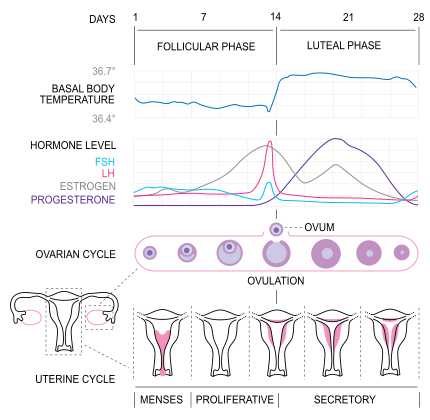Digestion is one of the body’s naturally-occurring, automatic functions. Generally, it is something we don’t have to give much thought to because it happens without problems. The digestive health of some people, however, can be problematic. Poor digestive health occurs with the following diagnoses: Crohn’s Disease, gallstones, irritable bowel syndrome (IBS), and gastroparesis (to name a few).
Women are particularly susceptible to poor digestive health and more likely to suffer from the previously mentioned disorders. Even in digestive disorders that occur in both genders equally, women are more likely to suffer from severe symptoms. Why? Well, the digestive systems of men and women are different. For starters, women have longer intestinal tracts in order to move around the uterus and ovaries. According to Dr. Shakti Singh, gastroenterologist and hepatologist at Sutter Gould Medical Foundation in Modesto, California, the second difference between men and women is “hormones and their effect on the female GI tract.”[1]
How Do Hormones Affect Digestive Health?
Irritable Bowel Syndrome
Progesterone and estrogen are the main hormones that affect digestive health, particularly in an IBS diagnosis. Your gut is full of special cells with receptors that are designed to attach to these hormones. Once inside of your gut, these hormones affect your digestive health, causing pain and inflammation.
Smooth muscles inside of your digestive system help push food and waste through your intestinal tract. Progesterone and estrogen affect how fast this happens. Low levels of these sex hormones slow down the process and can lead to constipation. High levels result in diarrhea. Constipation and diarrhea, in turn, causes cramps. When your estrogen levels are low, you feel more pain. This happens because estrogen promotes serotonin production, which works to increase your pain threshold. Lower levels of serotonin mean your cramps and pains hurt more.[2]
Menstrual Cycle
Hormones change during all stages of the menstrual cycle, which also affects digestive health. Women, both with and without IBS, have reported digestive health problems during the premenstrual cycle, menstruation, and perimenopause (the stage before menopause). These symptoms include: bloating, constipation, diarrhea, bowel discomfort, and abdominal pain.
What are these monthly hormonal fluctuations? During the first five days of the menstrual cycle, beginning on day 1 of your period, your estrogen and progesterone levels are at their lowest. Estrogen begins to increase between days 6 and 14. Between days 15 and 24, progesterone production increases. Somewhere between days 24 and 28, these hormones drop suddenly.[3]
When these hormones are decreased, poor digestive health is triggered. These symptoms include bloating, diarrhea, constipation, bowel discomfort, and intestinal pain.
The Gallbladder and Gallstones
Your gallbladder is an important component of digestive health. The gallbladder stores concentrated bile, which it releases into the small intestine to help digest fats. Sometimes, gallstones form inside of the gallbladder. These stones are hard concentrations of cholesterol that can migrate to the bile duct. Once there, gallstones block the bile duct, which harms your digestive health by causing intense abdominal pain and diarrhea.
Women are more likely to develop gallstones than men. This is true because estrogen increases the concentration of cholesterol in bile. In addition, low levels of progesterone slow down gallbladder contractions. When the gallbladder cannot empty cholesterol-rich bile, gallstones form.[4]
How to Improve Digestive Health
Although it is difficult to control hormonal changes, there are some things you can do to reduce the symptoms of poor digestive health.[5]
Eat More Fiber
Make sure your diet is full of whole grains, fresh fruits and vegetables, beans, and nuts. These are all fiber-rich foods. Fiber helps you maintain proper digestive health by increasing the bulk and softness of stool. This reduces the risk of developing constipation and its accompanying bloating and cramping.
Drink More Water
In addition to eating more fiber, you should also increase your water intake. Water and other fluids help your body process the increased fiber intake. It also flushes waste and toxins through your liver and kidneys.
Consider Taking Birth Control
Birth control pills give you a more stable amount of estrogen and progestin (artificial progesterone). One of the biggest positives of taking birth control (beside avoiding unwanted or unplanned pregnancies) is decreased menstrual cramps.[6]
However, your hormones still drop before menstruation, which makes you vulnerable to poor digestive health. In addition, some researchers have found a link between taking birth control pills and increased risk for gallstones[7] and Crohn’s disease[8].
Featured photo credit: Unsplash via pexels.com
Reference
| [1] | ^ | https://www.mylifestages.org/health/digestive_health/digestion_in_women.page |
| [2] | ^ | WebMD: Do Your Hormones Affect IBS? |
| [3] | ^ | Women In Balance Institute: About Hormone Imbalance |
| [4] | ^ | Hormones Matter: The Gallbladder: An Essential Organ Influenced by Hormones |
| [5] | ^ | Everyday Health: What Women Need to Know About Their Digestive Health |
| [6] | ^ | Empower: Birth Control Pills and Digestive Side Effects |
| [7] | ^ | Drugwatch: Yaz Gallbladder Disease |
| [8] | ^ | Health Day: Birth Control Pills, HRT Tied to Digestive Ills |













































